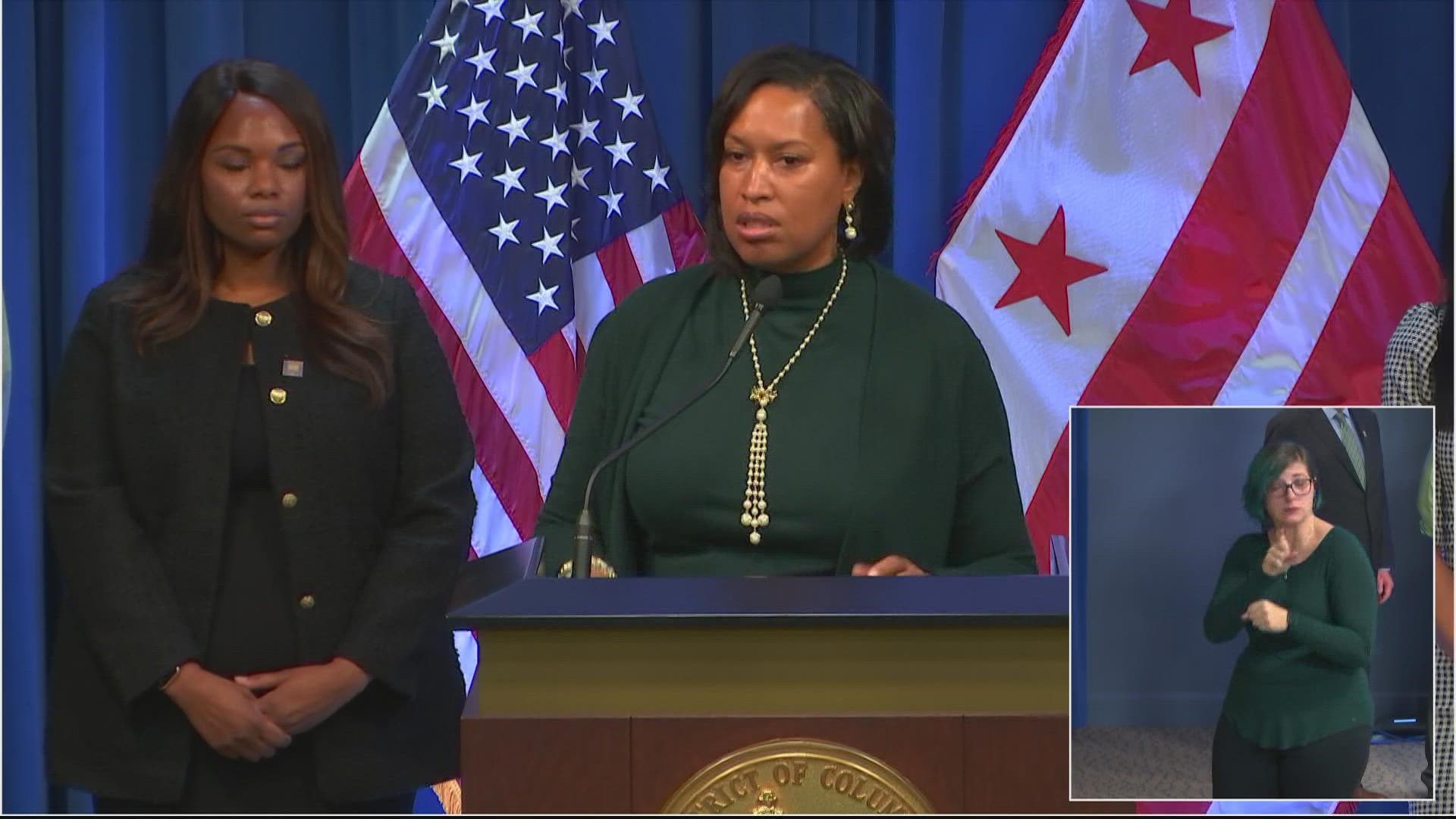WASHINGTON — The D.C. Council voted 12-1 Tuesday afternoon to override the mayor's veto of a bill that calls for sweeping changes to D.C.'s criminal code.
In November, the council unanimously voted to update the criminal code for the District for the first time in 100 years. The proposal would bring changes to everything from jury trials to sentencing rules.
But, within the first week of 2023, D.C. Mayor Muriel Bowser vetoed the proposal because she said she felt more community discussion was needed before any sweeping overhaul was taken in regard to the criminal code.
“A complete overhaul of our criminal code is a once-in-a-century opportunity,” Bowser said in a tweet on Jan. 4. “I believe it’s more important to get this opportunity right than to add policies and weaken penalties into what should be a bill that makes D.C. safer.”
On Jan. 17, the council, one by one, voted on whether to override the veto and with each vote, the councilmember provided a personal reason why the vote mattered to them.
"I want to begin by acknowledging that there are far too many people living in the District of Columbia who are living in fear, too many people who don't feel safe in their own neighborhoods - when they are catching public transportation, when they are playing in the parks across our cities," At-Large Councilmember Kenyan McDuffie said.
He continued by saying he has worked for years to create safer and healthier environments across the District. McDuffie expressed that this is not just for the community but also for him and his family.
"I am not immune to the concerns that have been raised by the people in the public," McDuffie said. "So the question that everyone is asking right now is: 'Will this law make our city less safe?' and I say - no. Emphatically - it will not make our city less safe."
Other council members echoed these thoughts as they voiced their opinions on the votes. Councilmember Trayon White was the only vote against the veto.
Harsh words were exchanged online between at least one council member and the D.C. Police Union. Responding to a tweet by Councilmember Brianne Nadeau, the D.C. Police Union's tweeted that Nadeau's comments were "an outright lie."
“The mayor is the only elected official listening to District residents on crime and violence," D.C Police Union Chairman Greggory Pemberton said. "This law, once enacted, will lead to violent crime rates exploding even more than they already have. It’s reprehensible that the Council would smugly continue to support failed policies at the expense of the lives of our most vulnerable residents.”
Councilmember Charles Allen called the bill a massive upgrade that would build greater trust, consistency and transparency in the criminal justice system.
"This bill is the capstone to nearly two decades of work led by the criminal code commission formed by a body stakeholders, including prosecutors, public defendants, criminal law experts, all who urge this council to move forward with the RCCA," Allen said.
Council Chairman Phil Mendelson took aim directly at Mayor Bowser after her arguments about the bill not making District residents safer.
"That is irresponsible rhetoric and it plays into folks like the Freedom Caucus in Congress," Mendelson said.
Mayor Bowser's office released a statement regarding the revised criminal code Tuesday night:
The Revised Criminal Code Act of 2022 aims to rectify historic wrongs in our criminal code. However, by adding undebated and unvetted policies that would best be addressed through stand-alone legislation, it, unfortunately, falls short on meeting the moment we are in right now. We are living in unprecedented times, when our country is saturated with guns and it is far too easy for people who should not have a firearm to access one. As elected leaders, we must take the fear and trauma of gun violence seriously by ensuring our criminal justice system is fair and functional and supports our top priority: keeping our community safe. That’s where my priority remains, and we will be sending legislation to the Council in the next 30 days that addresses the most concerning policies and weakened penalties included in the updated code.
The Revised Criminal Code Act is not set to take effect until Oct. 2025. But as of now, the bill is an Act of the Council. To make it a law, the DC Council has to pass that act to the speaker of the House and the president of the Senate.
Congress then has a 60-day review window. If they do nothing, it becomes a law. If they don’t like it, the House and Senate can file a joint resolution disapproving the act. That resolution goes to the president’s desk, and if signed, the D.C. act gets rejected and the Council has to start over.
Watch Next: Here's what a revised criminal code means for DC

